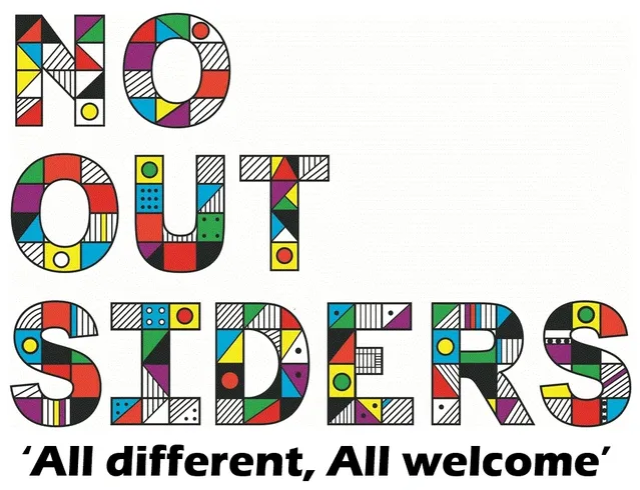British Values
From September 2014, schools within England have had a duty to promote British Values. The Department for Education (DfE) define them as:
- Democracy
- The rule of law
- Individual liberty
- Mutual respect
- Tolerance of those of different faiths and beliefs
At Hazelmere Junior School, British values are promoted in so much of what we do through our school values, not least during our school assemblies where we sing the National Anthem weekly at Awards Assembly with a weekly assembly themed around one of the British Values, through Religious Education (RE) and Spiritual Moral Social and Cultural aspects of learning (SMSC). In most cases these are universal values that you would expect to find in any civilised society.
Hazelmere Junior School Values
If it’s to be…..it’s up to me.
Be Ready, Be Safe, Be Respectful
At Hazelmere, we encourage our pupils to:
- show respect
- work together
- be responsible
- care about ourselves
- be a good citizen
- relate well to others
- be confident
- be motivated
- be adaptable
- achieve across the curriculum
As well as actively promoting British values, the opposite also applies: we would actively challenge pupils, staff or parents expressing opinions contrary to fundamental British values, including ‘extremist’ views.
Being part of Britain
At Hazelmere Junior School, we value and celebrate being part of Britain. In general terms, this means that we celebrate traditions, such as customs in the course of the year; for example, Remembrance during the Autumn term, and a Christmas themed production at Christmas time. We also value and celebrate national events. children learn about being part of Britain from different specific perspectives.
Two specific examples of when we teach about being part of Britain are:
Geographically: A better understanding of what Britain is, learning more about:
- where Britain is in relation to the rest of Europe and other countries in the world
Historically: The main focus is on British history
- children learn about an aspect of life and how this has developed and changed over time
Democracy
Children, parents and staff have many opportunities for their voices to be heard at Hazelmere Junior School. Democracy is central to how we operate.
An obvious example is our School Council. The election of the School Council members reflects our British electoral system and demonstrates democracy in action: candidates make speeches, pupils consider characteristics important for an elected representative, pupils vote in secret using a ballot system. Made up of a representative from each class, the School Council meets regularly to discuss issues raised by the different classes. The council is able to genuinely effect change within the school; in the past, the School Council organised for changes to the playground to be made after taking a school vote on the most popular items and presenting their case to the Headteacher. The Council are also involved in providing teachers with feedback on a variety of topics.
Other examples of ‘pupil voice’ are:
- children agree their Class Charter and the rights associated with these; all children contribute to the drawing up of the charter
- children are asked to respond and reflect on the teaching and learning
- children nominate various charities to support over the course of the school year
Pupils are always listened to by adults and are taught to listen carefully and with concern to each other, respecting the right of every individual to have their opinions and voices heard. We encourage pupils to take ownership of not only their school but also of their own learning and progress. This encourages a heightened sense of both personal and social responsibility and is demonstrated on a daily basis by our pupils.
Rules and laws
The importance of rules and laws, whether they be those that govern our school or our country, are referred to and reinforced often, such as in assemblies and when reflecting on behaviour choices. At the start of the school year, each class discusses and sets its own Class Rules, a set of principles that are clearly understood by all and seen to be necessary to ensure that every class member is able to learn in a safe and ordered environment.
Pupils are taught the value and reasons behind laws, that they govern and protect us, the responsibilities that this involves, and the consequences when laws are broken. These values are reinforced in different ways:
- visits from authorities such as the police and the fire service
- during Religious Education, when rules for particular faiths are thought about
- our Behaviour Policy ensures that children who display behaviour which is not in line with our school ethos are challenged and supported in developing their understanding of right and wrong.
- during other school subjects, where there is respect and appreciation for different rules e.g. in a sports lesson
Individual liberty
Alongside rules and laws, we promote freedom of choice and the right to respectfully express views and beliefs. Through the provision of a safe, supportive environment and empowering education, we provide boundaries for our young pupils to make choices safely; for example:
- choices about which learning challenge or activity to complete
- choices about how they record their learning
- choices around the participation in extra-curricular activities
Our pupils are encouraged to know, understand and exercise their rights and personal freedoms and are taught how to exercise these safely, such as in our e-safety lessons and through SMSC.
Mutual respect and tolerance of those with different faiths and beliefs
Hazelmere Junior School is in an area which is becoming more culturally diverse and we are proud to promote and celebrate our different backgrounds and beliefs. Mutual respect is at the heart of our aims and ethos.
Our pupils know and understand that it is expected and imperative that respect is shown to everyone, whatever differences we may have, and to everything, whether it is a school resource, a religious belief or other form of cultural diversity. Children learn that their behaviour choices have an effect on their own rights and those of others. All members of the school community should treat each other with respect.
Specific examples of how we at Hazelmere Junior School enhance pupils understanding and respect for different faiths and beliefs are:
through Religious Education, SMSC and other lessons where we might develop awareness and appreciation of other cultures (eg. in English through fiction and in Art by considering culture from other parts of the world)
Extremism
Something which is clearly not part of any British or European value is extremism. It is important to remember that whilst the threat from so-called Islamic State has been a focus in the Counter Terrorism and Security Act, the Prevent Duty is clear that extremism of all kinds should be tackled too. In England, far right groups such as Britain First and the English Defence League need to be tackled as well. Extremism is not a new topic in education, but schools have a statutory duty to pay “due regard to the need to prevent people from being drawn into terrorism”. The designated safeguarding lead in school is up to date with this Prevent training.
The government has published Prevent duty guidance which you can read on the following website:
https://www.gov.uk/government/publications/prevent-duty-guidance
No Outsiders

What is No Outsiders about?
No Outsiders teaches children they belong in school. We say there are 'No Outsiders' here because everyone is welcome; we talk about being different and playing together. No Outsiders is taught through the use of 42 picture books from Reception to Year 6. Many of the books are books you might already have seen such Elmer the elephant. In addition to lessons, each Monday our school assembly focuses on a No Outsider theme to show real life examples of inclusion around the world.
Why are you focusing on difference?
Hazelmere Junior School is an incredibly diverse school where we welcome people from all walks of life. We want our children to understand the importance of belonging and difference being a positive thing. It is our responsibility to prepare young people for life in modern Britain and be accepting of the many wonderful differences they will encounter throughout life.
If you would like to know anymore about No Outsiders please follow the link below.
No Outsiders
